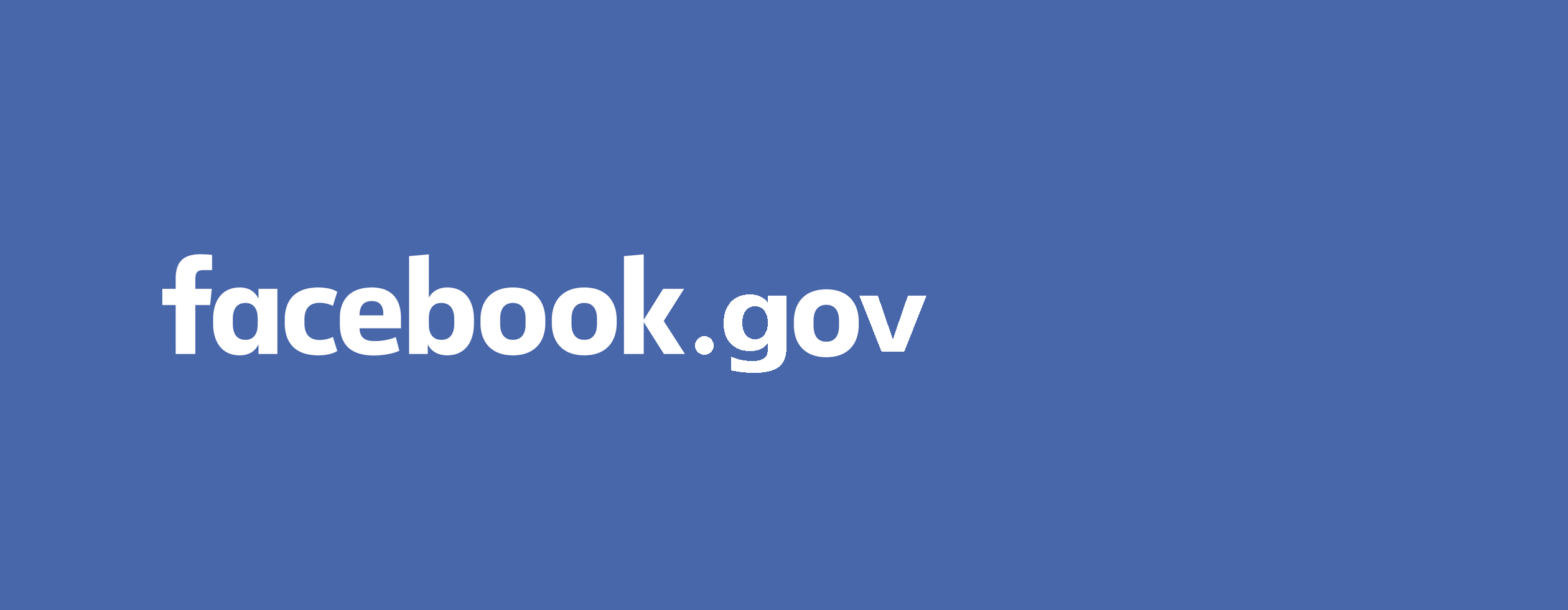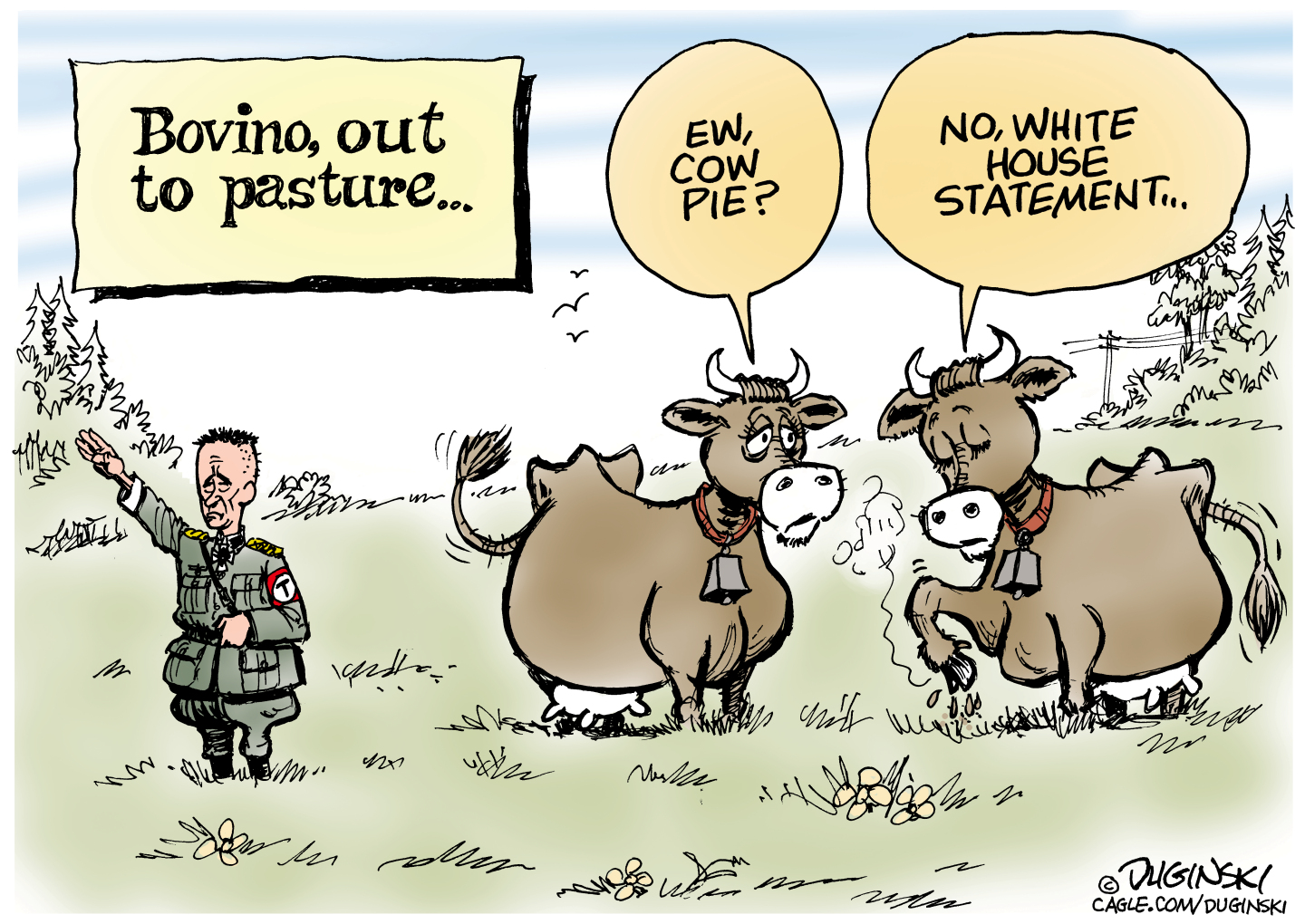Why we should just nationalize Facebook
When a private company becomes a monopoly, it might as well be publicly owned


I have a modest proposal: Let's nationalize Facebook.
Just have the U.S. government take controlling ownership of the company. We've done it before, sometimes in the case of emergencies and wars, but also in the case of natural monopolies. That's an instance where the natural costs to enter a market are really high, but operating costs for a business once it's entered the market are low, so there are natural barriers to competition. Roads, water utilities, and electrical utilities are the classic examples, since different companies aren't going to build competing physical systems of highways, pipes, or power line towers. And publicly owned utilities in America are particularly common at the municipal or regional level.
At first blush, it seems weird to claim Facebook is a natural monopoly. There's no physical infrastructure it has to lay down. It's a web application — all bytes and electrons — so if someone doesn't like the way it's run, they're perfectly free to start their own.
The Week
Escape your echo chamber. Get the facts behind the news, plus analysis from multiple perspectives.

Sign up for The Week's Free Newsletters
From our morning news briefing to a weekly Good News Newsletter, get the best of The Week delivered directly to your inbox.
From our morning news briefing to a weekly Good News Newsletter, get the best of The Week delivered directly to your inbox.
Yet Facebook sure looks like a monopoly. Worldwide, Facebook's 1.4 billion users are crushing competitors like Twitter and Instagram. The story here in the U.S. is slightly less dramatic, but still overwhelmingly in Facebook's favor. This domination is almost total in the developing world, where Facebook is often the only means of accessing the internet at all. Carriers in poorer countries often offer Facebook-only data plans (Sprint is even doing this in the U.S. now) or plans ingrained in new mobile devices and smartphones that offer access to the "internet" — i.e. Facebook — totally free. Which effectively locks poorer users into Facebook and nothing else. A fair number of users already don't seem to realize that Facebook belongs under the conceptual umbrella of the internet, and is not a thing unto itself.
Facebook is also behaving like a monopoly. It's buying up competing apps to move into person-to-person messaging, more elaborate photo sharing, different user experiences, and more. It's working with major new publishers to host their work — not as links back to the original reporting on the publishers' sites, but as stand-alone content within Facebook itself. As Susie Cagle put it in Pacific Standard, Facebook is trying to become the start-to-finish provider of internet infrastructure — it's trying to make a world in which those people who confuse Facebook for the internet actually aren't confused at all. Facebook will be the platform on which everything else that happens in the internet is conducted, and it will control that platform — the algorithms that determine who sees what when, and what information gets through.
All of which is particularly striking when you consider another billion or so people in the developing world are probably going to hop on the internet in the next few years. Facebook is chomping at the bit.
How did this happen? Well, there are only so many eyes in the world, and only so much time per day those eyes can spend looking at stuff on the internet. So Facebook could in fact corner the market. And when you consider the way most people use social media — as a tool for both professional and personal networking — you can see how competitors would have a very hard time breaking in with something new. People don't want to rip up the ways they've organized their daily lives just to try and shop around for new apps.
A free daily email with the biggest news stories of the day – and the best features from TheWeek.com
We know the physical infrastructure of roads and pipes throws up barriers to market entrants. Maybe the "social infrastructure" of friends circles and professional connections and daily access to news and blogs and everything else throws up those barriers as well. In that case, whoever enters the social media space first is destined to rule it. And Facebook won that lottery.
"If the majority of the world’s online population spends time on Facebook, then policymakers, businesses, startups, developers, nonprofits, publishers, and anyone else interested in communicating with them will also, if they are to be effective, go to Facebook," wrote Leo Mirani in Quartz. "That means they, too, must then play by the rules of one company. And that has implications for us all."
This is especially true when it comes to privacy. One wrinkle in mapping Facebook onto the concept of natural monopolies is that Facebook users aren't its customers. Advertisers are. Its users are the product, which is why Facebook has an effectively bottomless incentive to track everything its users do on its increasingly ubiquitous platform, then sell it to the highest bidder. The more detailed and granular the information, the more valuable it is to advertisers. And while Facebook still has an incentive to keep users happy so that it has a product to sell, that incentive will become less acute the closer Facebook gets to clearing out all competitors. If this trend bleeds over to other key aspects of our lives — like, say, credit scores — you could imagine some pretty unpleasant scenarios.
Over at BloombergView, Megan McArdle was relatively sanguine about all this: If you're that worried about your privacy, don't use Facebook. Or use adblockers and clear out your cookies and check your privacy settings and all the rest of it. But that, too, will become increasingly difficult if Facebook continues to approach total monopoly status. Moreover, it betrays a rather perverse set of moral priorities: It treats Facebook's private for-profit existence as sacrosanct, while dismissing as negotiable its impact on our concrete lives together as human beings. The ostensible purpose of market forces is to make human lives better. But if they force each one of us to become petty bureaucrats and technophiles overseeing the esoteric minutiae of our online existence, then maybe we need something other than market forces in this instance.
Nationalizing Facebook wouldn't solve everything. But the key thing to remember is that all the great stuff the profit-motive is supposed to deliver us — lower cost, better quality, bureaucratic responsiveness, institutional efficiency — only applies in the presence of intense market competition. A monopoly is by definition the absence of that competition. In that case, public or private ownership is equally likely to hit on a high-quality institutional design. A few decades ago, municipalities got fed up with the waste and frustration involved in publicly owned utilities, and switched to privately owned and regulated ones. Then they got fed up with those and switched back. Monopolies are just inherently unwieldy beasts. And a nationalized Facebook would at least be under democratic accountability.
So yes, the service Facebook provides is not free. It needs to make revenue. But that's only because it's a private for-profit entity. If that's what's entangling it with advertisers, and forcing each one of us to become our own personal online security firm, then just nationalize the damn thing.
Jeff Spross was the economics and business correspondent at TheWeek.com. He was previously a reporter at ThinkProgress.
-
 5 redundant cartoons about Greg Bovino's walking papers
5 redundant cartoons about Greg Bovino's walking papersCartoons Artists take on Bovino versus bovine, a new job description, and more
-
 31 political cartoons for January 2026
31 political cartoons for January 2026Cartoons Editorial cartoonists take on Donald Trump, ICE, the World Economic Forum in Davos, Greenland and more
-
 Political cartoons for January 31
Political cartoons for January 31Cartoons Saturday's political cartoons include congressional spin, Obamacare subsidies, and more
